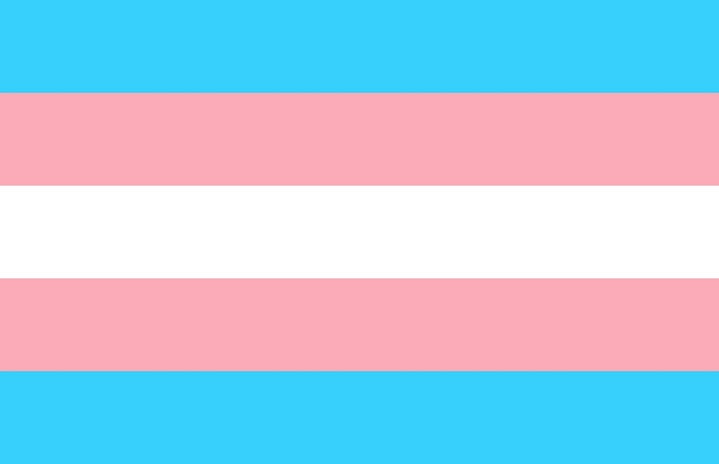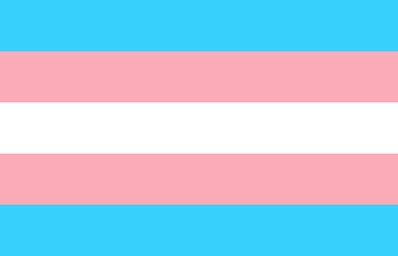One morning in June, I opened up Twitter to find that J.K. Rowling was trending for making transphobic remarks. She had shared an article on Twitter that mentioned: “people who menstruate” ⏤ an inclusionary term meant to take into account diverse gender identities and experiences ⏤ and somewhat passive-aggressively pointed out that the article didn’t use the word “women” instead. The exact quote (which is oh, so offensive) reads “‘People who menstruate.’ I’m sure there used to be a word for those people. Someone help me out. Wumben? Wimpund? Woomud?” Not only did this completely invalidate everyone on the wide spectrum of gender identity, but it also implied that all cisgender people have similar experiences. As a great friend of mine pointed out, it isn’t even correct, as many cisgender women do not experience menstruation at all.
With each addition to the thread, Rowling promoted ideas of the gender binary, specifically the idea that gender is determined by biological sex. She completely disregarded the vast amount of people who experience gender dysphoria. With each comment, I found myself becoming more horrified, and when I reached the end of the thread, I could see millions of comments flooding in from people with my exact mindset: What the fuck?!?!
Many of us experienced a great sense of betrayal. As a Harry Potter fan, proud Gryffindor and, in general, a very fantasy-lover, I was absolutely shocked by this figure of discrimination behind one of the world’s favorite fantasy worlds. Alongside myself, millions of children read these books and dreamt of one day going someplace so wonderful. While some just read them as sweet fiction, others relied on these novels to take them away and to make them feel included when their real environments couldn’t.
When J.K. Rowling announced that Headmaster Dumbledore was gay, suddenly our escape was even more perfect (I mean, that announcement was far from the best representation, but the concept that gay people could belong at Hogwarts was a blessing). Now, everyone who didn’t feel they could belong in the real world had a place at Hogwarts since it seemed clear everyone was welcomed!
Naturally then, the LGBTQ+ community was furious about Rowling’s discriminatory comments. I read tweets posted by many non-binary/gender-nonconforming users who were crushed that the creator of their sanctuary would be so outright against them. A world which was once seen as such a comfort, a world where an outsider could magically fit in, had suddenly become another force of pain. Another wall in their face.
Mallory Rubin summed up this devastation in a tweet: “Harry Potter is about the magic of love, acceptance, belonging. The power of courage. The impact of hope. Trying to take those things away from people is a terrible tragedy. Trans women are women.”
Many of the stars of the Harry Potter movies spoke against Rowling in solidarity with the trans community, including the Golden Trio: Daniel Radcliffe, Rupert Grint and Emma Watson. Many other actors have since commented, as well.
When I did more research, I found out Rowling faced similar backlash in December 2019 when she publicly supporter Maya Forstater after she was fired for transphobic tweets. After the controversies in June, Rowling commented about this on her website and wrote an article to explain her ideologies.
Just as the controversy about Rowling began to die down, her most recent novel was announced on September 14, Troubled Blood. Troubled Blood is the latest installment of her crime fiction series, written under the pseudonym Robert Galbraith. In short, the plot features a male serial killer who poses as a woman in order to kill women. Given Rowling’s previous comments about her ideologies, people have considered this novel to be highly transphobic, encouraging harmful anti-trans tropes, villainizing and further isolating transgender people.
Our most recent development seems to confirm it. Rowling tweeted a link to an online shop, Wild Womyn Workshop, where she purchased a shirt reading: “This witch doesn’t burn.” On the front page of their website, there’s a collection of products labeled “gender critical,” the picture showing a number of products sharing Rowling’s harmful ideologies. Some of these products read slogans like “f*ck your pronouns,” “female is not a feeling” and “trans-ideology erases women.” I’m not even going to begin to comment on how disgusting that is. Of course, Twitter was outraged, and rightfully so.
Now, the question lingers: is it possible to still be a Harry Potter fan without supporting Rowling? As a member of the LGBTQ+ community, Gryffindor and collector of Hogwarts goods, I, among others, have been looking for ways to move forward with this. This predicament leaves so many of us very angry and confused. We’ve been investing so much of our childhoods, and even our identities, into this franchise and its community, only to be betrayed by the woman who created it.
I saw a great Instagram story post by one of my favourite authors, Robyn Schneider, speaking against Rowling. She shared someone’s reply to her story which asked, “How do I look at the books on my shelves that meant so much to me as a kid and deal with [Rowling].” Schneider responded, “I think you remember the community the books created, and how much more meaningful the magic was when we made it ourselves. That’s what I do.” I think that’s an excellent take (The story post has expired, but I found it in my archives after resharing it).
I also found some other articles discussing how to be a Harry Potter fan without supporting Rowling. One of the biggest bits of advice was to stop making purchases of official merchandise since Rowling makes a direct profit from this. Don’t buy the books or movies, and if you must, buy them used or rented. Similarly, don’t buy any official merchandise, visit the Wizarding World in Univeral Studios or see any performances of the Cursed Child as Rowling also gets a direct cut from these. Of course, it is worth mentioning that boycotting the play and park may also hurt the employees working there, so use your own discretion, but be aware of where your money is going. Otherwise, there’s plenty of unofficial Harry Potter merch out there to satisfy your wizarding needs.
There are loads of other ways to go about being a Harry Potter fan in 2020, and I’ll link this great article as a resource to get you started.
Of course, I wasn’t able to cover everything in this article, so if you’d like to continue reading, I encourage you to do some more research on the matter. Here are some articles I’ve read to stay informed:
A Complete Breakdown of the J.K. Rowling Transgender-Comments Controversy
J.K. Rowling sparks outrage for including cross-dressing serial killer in new book
How to be a Harry Potter fan without supporting J.K. Rowling ever again
Does J.K. Rowling’s Transphobia Ruin Harry Potter?
With all this in mind, there are definitely some adjustments I’ll be making in my life, especially with regard to paying attention to and reconsidering the people I support. I hope there will soon come a time when everyone can express their identity with support and validation from those they look up to, but until then, our efforts can go towards supporting underrepresented creatives. This article has a few links to transgender and non-binary writers you can check out. Thank you for reading, and please stay informed!



